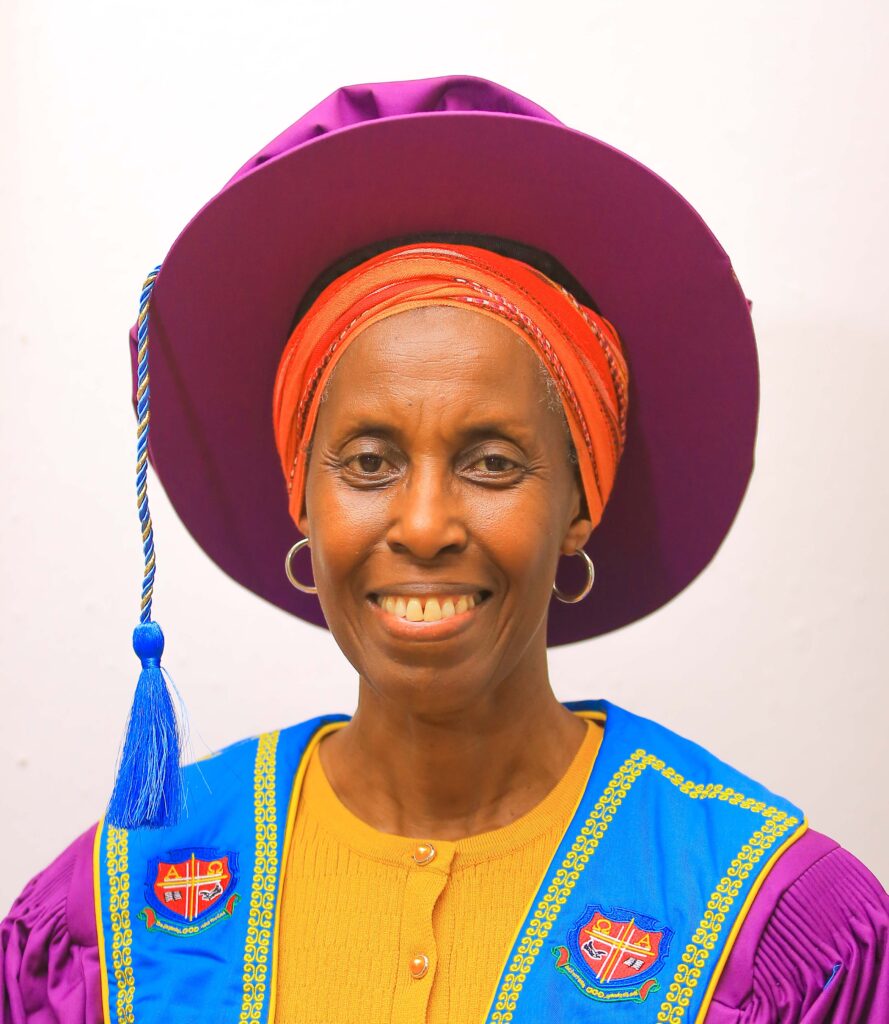By Yasiri J. Kasango
On January 3, 2012, Prof. Monica Chibita embarked on a transformative journey as she joined Uganda Christian University (UCU) after 17 years of service at Makerere University. At Makerere, she had climbed the academic ladder from lecturer to associate professor, taking on roles such as assistant coordinator, coordinator, and head of department. Despite her achievements, she felt it was time to embrace a new challenge. Her decision to transition to UCU was not immediate but came after prayer and conviction, ultimately becoming a calling she could not ignore.
When Prof. Chibita joined UCU, she inherited a department in transition. The Mass Communication Department, previously under the Faculty of Education, had seen its head, Ben Bella Ilakut, resign. An acting head, Okuku Obomba, held the reins for a year as Chibita worked to disengage from Makerere. This process took nearly a year due to emotional and professional attachments.
Significant challenges marked Prof. Chibita’s early days at UCU. “The lack of autonomy was a major issue,” she recalls. While her dean, Prof. Medad Rugyendo (then Dr. Rugyendo), was extremely supportive, the unique needs of the Mass Communication Department, such as equipment for reporting and running The Standard newspaper, often required urgent attention. Communicating these priorities to individuals outside the discipline was a persistent struggle. Furthermore, the physical separation between the Faculty of Education and the department created logistical hurdles.
Staffing was another pressing issue. At the time, Chibita was the only faculty member with a PhD. The team included Obomba at the lecturer level, Dorothy Kamasomelo, a lecturer and technical instructor, and several teaching assistants. Recognising the need for a robust team, Chibita made it a priority to recruit and train full-time staff.
In 2014, a call for capacity-building proposals from the Norwegian Programme for Capacity Development in Higher Education and Research for Development (NORHED) was made. For Chibita, this funding opportunity aligned perfectly with her vision. She assembled a team, and their proposal secured a Shs13.7 billion grant, a historic achievement for UCU.
The university partnered with universities in Norway and South Africa to address critical gaps. Norway provided PhD expertise, while South Africa’s high-quality PhD programs enabled five staff members to pursue doctoral studies. Additionally, the grant funded six master’s scholarships, much-needed equipment, and library resources.
The collaboration also introduced a modular programme for the Master’s in Journalism and Media Studies and Strategic Communication programmes, where students attended intensive two-week face-to-face sessions supplemented by online assignments.
By 2019, the department had grown significantly, earning its elevation to the Faculty of Journalism, Media, and Communication.
“The NORHED grant played a critical role in this milestone,” Chibita notes. The grant enabled the faculty to meet essential requirements, including qualified staff, infrastructure, and equipment. Although space remained a challenge, the faculty’s progress made a compelling case for independence.
Chibita has gone on to win more grants for the School of Journalism, the most recent being Communicating Migration and Mobility: E-Learning Programs and Newsroom Applications for Sub-Saharan Africa, a project in collaboration with Makerere University.
The emergence of COVID-19 in 2020 brought unprecedented challenges. “Our team was decimated, and morale plummeted,” Chibita recalls. The pandemic necessitated restructuring, which initially seemed like a setback but ultimately became an opportunity to adapt. The faculty merged its two master’s programmes Journalism and Media Studies and Strategic Communication into a single programme – the Master’s in Journalism and Strategic Communication.
The faculty also streamlined its organisational structure, reducing programme heads to two departmental heads.
Despite these achievements, the pandemic’s impact lingered. The faculty mourned the loss of Obomba, a beloved staff member. “His absence was deeply felt,” Chibita says. Rebuilding after the pandemic required resilience and strategic thinking. “We had to keep reassuring staff about their job security and constantly strategise to navigate uncertainties,” she adds.
Throughout her tenure, Chibita’s faith remained a cornerstone of her leadership. She found solace in a Bible passage about Jesus calming a storm in Mark 4:35-41, which became her guiding theme during the pandemic. “God is the blessed controller of everything,” she says. Leading devotions on this passage, she encouraged colleagues to persevere through challenges.
Reflecting on her journey, Chibita sees the frustrations of her early days as stepping stones to success. The COVID-19 pandemic, though a significant disruption, became an avenue for innovation and growth. Her unwavering faith and collaborative spirit have been instrumental in overcoming obstacles and achieving milestones.
Prof. Chibita highlights the challenges women in leadership face in balancing professional and family responsibilities, noting the dual expectations that come with being a dean at work and a wife and mother at home. She emphasises the importance of prioritisation, communication, and setting boundaries to maintain this balance. “At work, they knew my weekends and nights were off-limits,” she says, explaining her decision to protect family time even if it meant missing events like movie launches. Chibita also underscores the value of delegation and teamwork, noting, “You have to know that you are not working alone,” while stressing the role of prayer in navigating these demands.
Prof. Chibita treasures her time as Dean, reflecting on it as a fulfilling journey marked by the success of her former students. She goes on to say that she is not leaving UCU but will concentrate on doing research and teaching in the School of Journalism, Media, and Communication.


